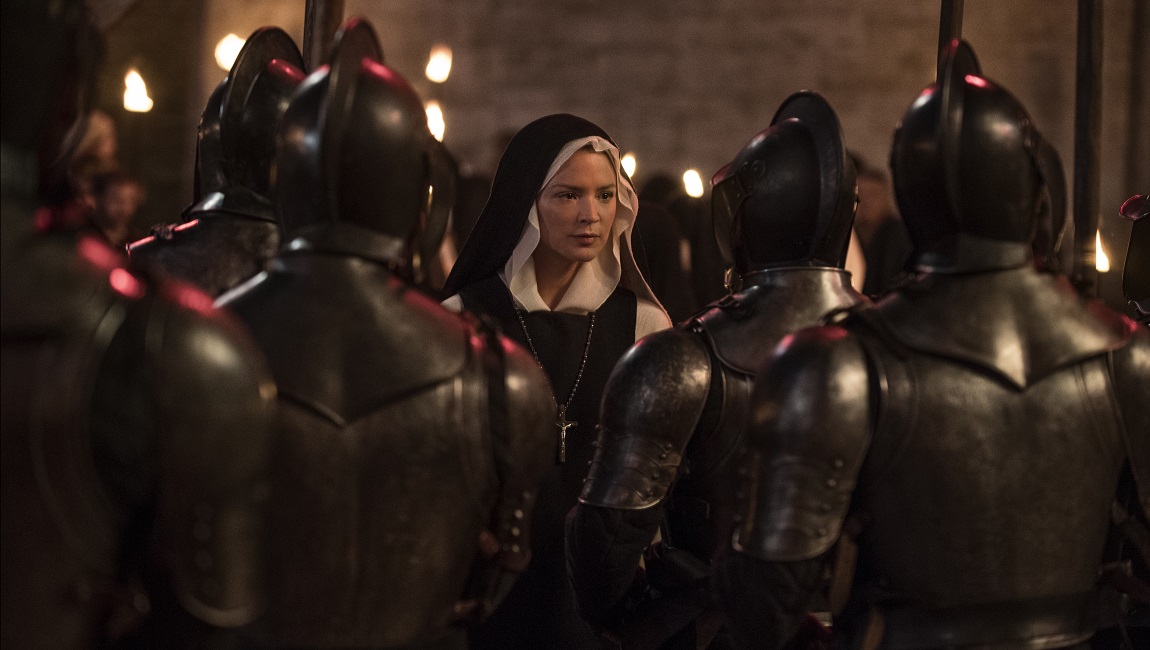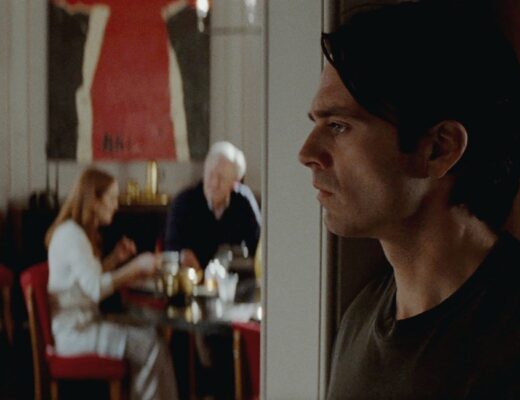It’s a shame that The Braves didn’t keep its French title Entre Les Vagues (Between the Waves) for its worldwide release. Between the Waves is not just the heart of its powerhouse coda, but a neat metaphor for how the film tackles such heavy subject matter and feels so fleet, ebullient, and exhilarating. This is a story of two friends navigating a path through a tumultuous storm of events, and when the dramatic waves crest, director Anaïs Volpé commands her ship with the flair and vivacity reminiscent of the fireworks sequence from Leos Carax’s The Lovers on the Bridge. Part of Volpé’s arsenal, alongside her playful experimental streak (her first feature HEIS: Chroniques was accompanied by multimedia pop-up exhibitions), is her secret weapon in DP Sean Price Williams whose resume packs a wallop when it comes to frenetic filmmaking — just think of the way he captured the controlled chaos in Alex Ross Perry’s Her Smell, or the panic-attack framing of the Safdies’ Good Time. While The Braves is by no means perfect, its infectious energy, combined with the dynamite leads, gives it an irresistible feel.
Alma and Margot are inseparable friends in their 20s dreaming of acting fame and glory. Things seem downright star-aligned when pulling a stunt at an audition lands them the roles of lead and understudy in an avant-garde theater production. However, they quickly get thrown into chaos when Alma falls ill, forcing Margot to assume her best friend’s role. While much of the plot feels a little by-the-numbers and predictable at times, one of its most interesting dimensions is how grounded and naturalistic the central friendship is. You might anticipate that the two would turn on each other in the second act only to inevitably reconcile by the third, but the dynamic Volpé sets up feels much deeper, warmer, and more substantial than some of the naturally surfacing clichés. Of course, the entire film hinges on the two central performances, which Déborah Lukumuena (Alma) and Souheila Yacoub (Margot) handily deliver.
You might remember Lukumuena as part of another inseparable duo in Houda Benyamina’s Camera d’Or winning Divines, and Yacoub, from her unforgettable snow crawl in Gaspar Noé’s Climax. Lukumuena’s Alma bursts with dialed-up charisma, a magnetic presence pulling focus in every scene she’s in, and with talent this obvious, it begs the question of why this brilliant Black actress finds herself consistently sidelined to spotlight her lighter-skinned co-stars, both here and in Divines. Watching these two films back to back creates an uneasy effect given the striking similarity of Lukumuena’s character trajectories: the best friend whose suffering forms a catalyst for the protagonist’s emotional growth. To be clear, this says less about the individual works, given both characters have a good measure of agency, nuance, and depth, but taking a zoomed-out look at the casting does reflect the quiet pervasiveness of colorism in the industry even in its bolder independent sector. At the very least, The Braves tacitly acknowledges Alma’s, and thereby Lukumuena’s, talents, as she is the one who is cast as the lead, with Margot as the understudy who later finds herself struggling to fill her friend’s shoes. That said, Yacoub is by no means a slouch, and Margot’s careening emotional intensity forms the backbone of the film’s second half and ultimately drives it home.
If The Braves’ weakness comes from its somewhat predictable structure, its strength remains in the affectionate friendship of the leads and the textured editing which entwines the women’s lives with the nostalgic yearnings of the play they’re cast in. One of the more memorable sequences comes early on, when the two celebrate by crashing a random wedding, Margot propping up the drunk bride while Alma brandishes a trumpet stolen from the band. Some breakneck editing and vivacious camerawork capture the night in a manic carousel of sound and image with the blurred edges of a half-remembered memory, a nostalgia for the now. The effectiveness of sparkling moments like this helps keep the film effervescent even as it loads up on emotional ballast, a quality which by the end allows it to achieve that rare type of uplift that feels earned as opposed to the cloying artificiality that has waterlogged so many other “feel-good” films before it.
Published as part of Cannes Film Festival 2021 — Dispatch 8.







